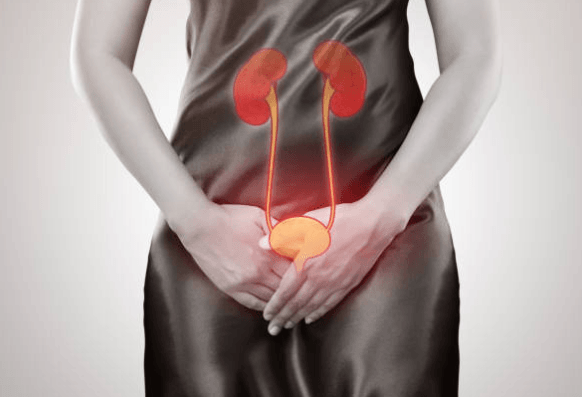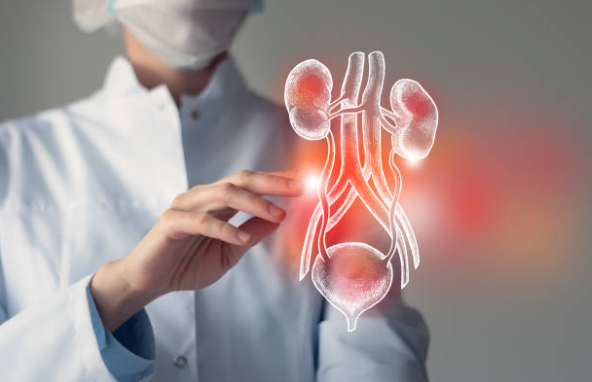What are the Key Bladder Infection Symptoms?



Before we dive deep into crucial bladder infection symptoms, you should be aware of the differences between bladder infections, urinary tract infections (UTIs), kidney infections, and cystitis. Let's start with bladder infections.
Most people mistakenly refer to urinary tract infections as bladder infections or kidney infections, or sometimes cystitis. Although there is a correlation between them, there is a significant distinction that every person must also be aware of. Let's start.
The most common causes of bladder infections are infections caused by bacterial infections inside bladders. Often termed a urinary tract infection, this type of infection includes the urine and kidney.
In some patients, yeast causes infections in the urinary tract. Bacterial infections can result in bladder inflammation called cystitis. In most cases, a bladder problem is acute - this is sudden. Sometimes other patients have chronic symptoms, a persistent event over many years. Early diagnosis and prevention are crucial.
Bladder infections are common and can affect women and men. They are usually caused by Escherichia coli or E.coli, typically found in the intestines or rectum. When this bacteria gets into the urethra (the tube that carries urine out of the body), it causes inflammation in the bladder wall resulting in symptoms such as a burning sensation when urinating, frequent urination, or an urgent need to go to the bathroom. Bladder infections can be treated with antibiotics if caught early enough. Still, severe complications may arise if left untreated. Hence, it's essential to see your doctor as soon as possible if you think you might have a bladder infection.
If you experience more than three infections a year, then it would be possible to get recurrent bladder infections. Consult your doctor to address the issue since repeated bladder infections may indicate you have a suppressed immune system.
When bacteria enter your urine and then migrate to your bladder, this is known as a urinary tract infection (UTI). UTIs are responsible for more than eight million emergency room visits and hospitalizations annually. During their lifetime, a urinary tract infection will affect around 60% of women and 12% of men, on average.
The terms urinary tract infection (UTI) and bladder infection (BI) are sometimes interchangeable. However, one should not be confused with the other because there is a difference between the two.
Urinary tract infections (UTIs) can include bladder infections; however, bladder infections are not the same as UTIs. An infection that affects one or more parts of the urinary tract, including the kidneys, ureters, urethra, and bladder, is referred to as a urinary tract infection (UTI). A UTI localized solely in the bladder is a bladder infection.
Did you know that most recurrent urinary tract infections (RUTI) are brought on by reinfection with the same pathogen? One of the most significant risk factors for recurrent urinary tract infections is engaging in sexual activity regularly. Complicated urinary tract infections (UTIs) can potentially cause upper urinary tract infections in a subset of people who already have several dreadful diseases.
A kidney infection is another type of UTI. Your urinary system comprises your bladder, kidneys, and urethra. We can all get rid of waste and remove it from our bodies. Your kidneys have two bean-shaped organs in your abdomen. It filters your blood and controls your concentration of many different substances—urinary tubes transport water and blood from the kidney to the bladder. The bladder holds the urine until it's necessary for urinating. Eventually, urine enters the urinary tract of the body.
Usually, antibiotic treatment can treat a mild kidney infection for 1 to two weeks.
The inflammation of the bladder is called cystitis in the medical field. An area of your body swollen and uncomfortable to the touch is said to be inflamed. It is also possible for it to be painful.
The vast majority of the time, cystitis results from an infection brought on by bacteria. This condition is an infection of the urinary tract (UTI). Having a bladder infection may be extremely painful and frustrating at the same time. If the infection spreads to your kidneys, it may become a significant health concern for you.
Cystitis can also arise as a side effect of taking certain medications or undergoing radiation therapy. Several factors can cause cystitis, including things that can occasionally irritate the bladder, such as using hygiene products, spermicide gels, or catheters for an extended period. It is also possible for cystitis to develop as a consequence of another illness.
Antibiotic therapy is the typical course of treatment recommended for patients who have cystitis brought on by bacteria. The underlying cause determines the cure for the many other kinds of cystitis.
Always consult your health professionals whenever you experience key bladder symptoms. Besides being painful and unbearable, the infection might cause severe health problems, especially if it spreads to your kidneys. Never take for granted any signs of bladder symptoms!

Painful urination
Burning sensation when urinating
The feeling of needing to urinate frequently (dysuria) or a feeling that your bladder is not empty despite having just finished urinating (urinary urgency)
Blood in the urine (hematuria) could be bright red or look like coffee grounds. But it may also appear cloudy or dark brown, similar to the colour of tea. It may not be visible at all on toilet paper after wiping.
Foul-smelling urine - sometimes mistaken for strong-smelling foods such as garlic or onion.
Urinary frequency is the need to urinate more often than usual, which can be caused by a urinary tract infection (UTI), bladder or kidney stones, or bladder cancer. It's also possible to have frequent urination without it being caused by an infection.
Urinary urgency is a sudden and strong urge to urinate that may occur with or without warning. Urinary urgency can be caused by a UTI, bladder or kidney stones, or bladder cancer.
Cloudy urine is a sign of infection, but something else might cause it. If you notice cloudy urine in the first place, you should get checked out by a doctor. The critical thing to remember is that cloudy urine doesn't mean there's a UTI—it just means that there's some change going on inside your body.
When bacteria cause an infection and multiply rapidly, they make extra waste products as part of their growth process. These waste products can build up in the bladder and cause it to become cloudy (this condition is called turbidity). Sometimes other substances from the body can also cloud up your urine and make it look like this—things like mucin or dead cells from within the urinary tract may cloud up your pee when mixed with high levels of bacteria.
Blood in the urine may be visible in the toilet bowl. Sometimes this is called haematuria. You might see red or pink urine after you urinate or even when you go to the bathroom but haven't yet urinated—this can be a sign of a UTI.
Pain or burning during urination
Feeling an urgent need to urinate more often than usual, especially at night.
Needing to run to the bathroom more than once during a single trip there
An odour is one of the most common signs of a bladder infection. The urine may smell like ammonia or have a foul odour that smells similar to urine but stronger. Cloudy urine is another symptom of a bladder infection, and excess bacteria can cause it in your system. Sometimes this symptom occurs due to other factors, including taking certain medications, eating certain foods, and drinking too much water too quickly.
Pain in the lower abdomen or pelvic region is a common UTI symptom. A person with the condition may experience some pain at the beginning of their urination and continue to feel discomfort throughout the day.
However, it's important to note that other health conditions can also cause pain in these areas, so you need to see your doctor if you're experiencing this symptom.
If you're experiencing any of these symptoms, you must see a doctor as soon as possible. Urinary tract infections are serious conditions that can lead to more severe health problems if left untreated.
If you think you may have a urinary tract infection, see your doctor immediately. UTIs are more common in women than men and often occur after sexual intercourse (called "honeymoon cystitis").
UTIs are no joke, and they can be pretty unpleasant. The good news is that you can reduce your risk of getting one by taking some simple steps.
The first thing you should do is to take in lots of fluids, especially water. It will help flush out any bacteria lingering in your bladder. It helps prevent urinary tract infections by diluting the urine and encouraging frequent urination.
You may also try cranberry juice, which can reduce the amount of time it takes for bacteria to grow in your urinary tract.
Put on loose clothing. Tight clothing has the potential to hold in moisture and provide an environment that is ideal for the development of bacteria.
Next, wipe from the front to the back when going to the bathroom—this will help avoid spreading bacteria from your anus to your urethra (the tube that leads from your bladder).
Finally, empty your bladder quickly after having intercourse or using a tampon—this helps prevent bacteria from entering and multiplying rapidly within the walls of your urethra.
Steer clear of any feminine items that might irritate, such as tampons or pads with wings; these can irritate the skin around your vagina and contribute to UTIs. Also, consider changing birth control methods if possible; some forms of hormonal birth control may increase susceptibility to UTIs due to changes in vaginal pH levels caused by oestrogen levels.
Also, avoid using items such as deodorant sprays and powders on the vaginal region. These products can potentially irritate the urethra, which may lead to an infection.
Antibiotics may be administered continuously or after sexual activity in the case of women who suffer from recurrent UTIs. Cranberry products, such as cranberry juice, which helps prevent bacteria from attaching themselves to the lining of the urinary system, and behavioural adjustment are two more therapies for urinary tract infections.
Women at an increased risk for urinary tract infections (UTIs) should speak with their primary care physicians and undergo a comprehensive urine exam that includes cultures to determine the most effective treatment method.
The symptoms of bladder infections are not easy to miss, so you must seek medical care as soon as possible. If left untreated, the infection can spread to other parts of the body and cause permanent damage in some cases. Therefore, you must seek medical advice at the first sign of any symptoms.
On the other hand, the National Institute of Digestive and Kidney Diseases (NIDDK) continuously conducts studies and randomized clinical trials on chronic conditions, including UTI symptoms, infectious diseases, and other risk factors that may result in weakened immune systems. Further, NIDDK says that changes may not help bladder infection prevention in food, nutrition, or eating habits, but drinking plenty of water to wash bacteria out of the urinary system may be helpful. It is essential to consult a medical professional to determine the appropriate amount of fluids to consume.
If you have had a bladder infection before, it's essential to know the signs and symptoms. The symptoms include:
Frequent urination.
Pain or burning when urinating.
Cloudy or bloody urine.
Lower abdominal pain.
You should also see your doctor if you have had an episode of cystitis in the past few weeks but not since then.
To learn more about issues that may be causing you discomfort such as bacterial vaginosis or cystitis, read through our women's health hub by clicking here.










Plus get the inside scoop on our latest content and updates in our monthly newsletter.